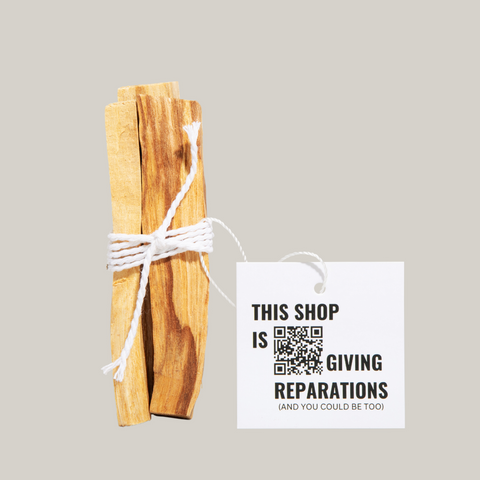

Cosakait (Palo Santo) Bundle
Cosakait (pronounced “koh-sah-kite”) is the Toba word for Palo Santo, a tree traditionally stewarded on their ancestral lands across the dry forests of the Gran Chaco in South America.
This sacred wood is traditionally used for cleansing, protection, and uplifting the spirit. Its scent is sweet, woody, and citrusy, with warm balsamic undertones—burned to dispel emotional heaviness, clear stagnant energy, and invite peace and renewal.
In Toba oral tradition, Cosakait was a virtuous young man whose unreturned love left him gravely ill. Before he passed, he prayed to Yago (God) that his spirit might remain on Earth to care for the one he loved. From his grave grew a fragrant tree—its wood became the sacred Palo Santo, a symbol of love, protection, and enduring kindness.
These restorative qualities are also present in the tree’s physical properties. Research shows that Palo Santo contains essential oils rich in limonene and α-terpineol—compounds with antioxidant, anti-inflammatory, and mood-balancing effects. These plant properties support emotional clarity and energetic protection, offering a gentle sense of grounding with every breath of its sacred smoke.
📦 BUNDLE SPECS
-
Approximately 4 inches in length
-
Hand-harvested from naturally fallen trees in South America
-
Sustainably sourced by an Indigenous-owned company
-
Packaged with a tag noting your contribution to reparative justice
